Hepato-pancreato-biliary (HPB) Surgery is a specialized field of surgery that focuses on the diagnosis and treatment of diseases related to vital organs and systems such as the liver, pancreas, and biliary tract. This field has achieved significant success in recent years thanks to advances in technology and surgical techniques. HPB surgery is considered to be a combination of surgical oncology, transplantation, and gastrointestinal surgery and is therefore a highly complex and challenging field. In this article we have prepared for you, we will try to answer the questions about Hepato – Pancreatic – Biliary Surgery (HPB System Surgery).
- What is Hepato-Pancreato-Biliary Surgery?
- What Is the Major HPB Surgery?
- What Is an HPB Surgical Procedure?
- What is Hepatobiliary Cancer?
- Pancreatic Disease
- Types of HPB Surgery
- In Which Problems Are Hepatobiliary Surgical Methods Used?
- How Is Pancreatic Cancer Treated?
- How Is Liver Cancer Treated?
- What Is a Bile Duct Cyst?
- What Causes Gallbladder Problems?
- Treatment Procedures for Bile-Related Problems
- The Most Advanced Options for Hepato-Pancreatic-Biliary Surgery
- What Are the Complications of HPB Surgery?
- Hepato-Pancreatic-Biliary Treatment Prices in Turkey
- What is the recovery time for hepatobiliary surgery?
- What is the survival rate for high-risk surgery?
What is Hepato-Pancreato-Biliary Surgery?
Hepato-pancreato-biliary (HPB) Surgery is a field that includes surgical procedures for the diagnosis and treatment of diseases of organs and systems such as the liver, pancreas, and biliary tract. This branch of surgery plays an important role, especially in the treatment of cancerous diseases. HPB surgery aims to improve the quality of life of patients by using innovative and effective treatment methods such as advanced laparoscopic and robotic surgical techniques, living donor liver transplantation, and pancreas transplantation.
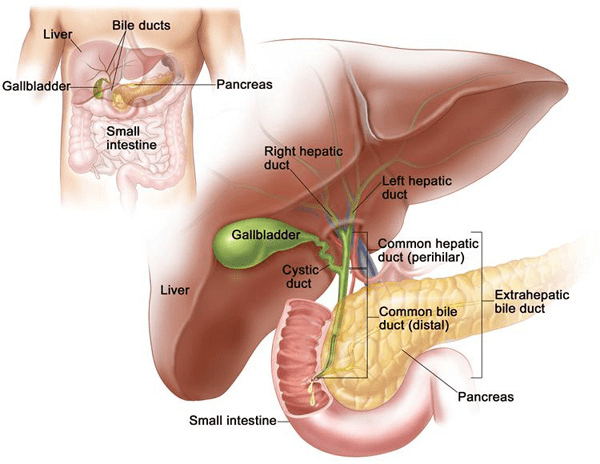
What Is the Major HPB Surgery?
Major Hepato-Pancreato-Biliary surgery refers to complex surgical procedures performed on the liver, pancreas, and bile ducts. These organs are essential for digestion, metabolism, and hormone production, so major Hepato-Pancreato-Biliary surgery is typically performed to treat serious and life-threatening conditions.
Some examples of major HPB surgery include:
- Liver resection: Liver resection is the surgical removal of a portion of the liver. It is often used to treat liver cancer, but it can also be used to treat other conditions such as liver cysts and tumors.
- Pancreatectomy: Pancreatectomy is the surgical removal of a portion of the pancreas. It is often used to treat pancreatic cancer, but it can also be used to treat other conditions such as chronic pancreatitis and pancreatitis-associated pain.
- Whipple procedure: The Whipple procedure is a complex surgery that involves the removal of the head of the pancreas, the duodenum, and a portion of the bile duct. It is often used to treat pancreatic cancer, but it can also be used to treat other conditions such as bile duct cancer and ampullary cancer.
Major Hepato-Pancreato-Biliary surgery is typically performed through an open incision in the abdomen. However, some major HPB procedures can now be performed laparoscopically, which is a minimally invasive surgical technique.
Major Hepato-Pancreato-Biliary surgery can be a challenging and risky procedure, but it is often life-saving. Patients who undergo major HPB surgery typically require a lengthy hospital stay and a prolonged recovery period.
What Is an HPB Surgical Procedure?
Hepato-pancreato-biliary (HPB) surgery is a specialized field of surgery that treats diseases of the liver, pancreas, and bile ducts. These organs are essential for digestion, metabolism, and hormone production, so Hepato-Pancreato-Biliary surgery can be life-saving for patients with serious conditions.
HPB surgical procedures can be used to treat a variety of conditions, including:
- Liver cancer
- Pancreatic cancer
- Bile duct cancer
- Gallbladder cancer
- Liver cysts
- Liver tumors
- Chronic pancreatitis
- Pancreatitis-associated pain
- Bile duct stones
- Bile duct strictures
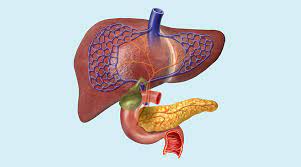
Hepato-Pancreato-Biliary surgery can be performed laparoscopically, minimally invasively, or through an open incision. The type of incision used will depend on the specific condition being treated and the surgeon’s preference.
Laparoscopic Hepato-Pancreato-Biliary surgery is a minimally invasive procedure that uses a laparoscope and surgical instruments inserted through small incisions in the abdomen. Laparoscopic Hepato-Pancreato-Biliary surgery has several advantages over open surgery, including less pain, shorter recovery times, and fewer complications.
Open Hepato-Pancreato-Biliary surgery requires a larger incision in the abdomen. This type of surgery is used for more complex Hepato-Pancreato-Biliary procedures, such as liver resections and pancreatectomies.
Hepato-Pancreato-Biliary surgery can be a complex and challenging field, but it can also be incredibly rewarding. HPB surgeons have the opportunity to help patients with serious and life-threatening conditions, and they play a vital role in the healthcare system.
If you are considering Hepato-Pancreato-Biliary surgery, it is important to talk to your doctor about the risks and benefits of the procedure. Hepato-Pancreato-Biliary surgery can be a life-saving surgery, but it is important to be aware of the potential complications before making a decision.
Here are some tips for patients considering HPB surgery:
- Get a second opinion from another HPB surgeon before making a decision about surgery.
- Ask your surgeon about their experience with the specific procedure you need.
- Make sure your surgeon has access to the latest technology and equipment.
- Talk to your surgeon about your expectations for surgery and recovery.
- Be prepared to ask questions and advocate for yourself.
What is Hepatobiliary Cancer?
Hepatobiliary cancer is a malignant tumor originating from the liver and biliary tract. These types of cancer are common worldwide and can lead to fatal consequences. Hepatobiliary cancer is usually divided into two main types: hepatocellular carcinoma (HCC) and cholangiocarcinoma (bile duct cancer). Early diagnosis and effective treatment of these cancers significantly affect the duration and quality of life of patients.
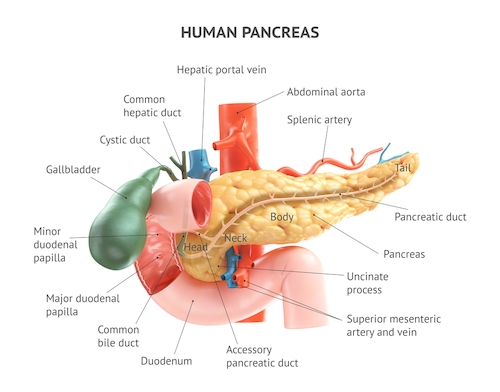
Pancreatic Disease
The pancreas is a small organ located behind the stomach. It plays an important role in digestion and metabolism. The pancreas produces digestive enzymes that break down food into nutrients that can be absorbed by the body. The pancreas also produces hormones, such as insulin and glucagon, which regulate blood sugar levels.
Pancreatic disease can refer to a variety of conditions that affect the pancreas. Some of the most common pancreatic diseases include:
- Pancreatitis: Pancreatitis is inflammation of the pancreas. It can be caused by a variety of factors, including gallstones, alcohol abuse, and certain medications. Pancreatitis can be acute or chronic. Acute pancreatitis is a sudden and severe inflammation of the pancreas. Chronic pancreatitis is a long-term inflammation of the pancreas that can lead to permanent damage.
- Pancreatic cancer: Pancreatic cancer is a type of cancer that develops in the pancreas. It is a relatively rare cancer, but it is very aggressive and difficult to treat. Pancreatic cancer is often diagnosed late in the stages when it is more difficult to treat.
- Pancreatic insufficiency: Pancreatic insufficiency is a condition in which the pancreas does not produce enough digestive enzymes or hormones. This can lead to a variety of problems, including malnutrition, diabetes, and weight loss. Pancreatic insufficiency can be caused by a variety of factors, including cystic fibrosis, chronic pancreatitis, and pancreatic cancer.
Types of HPB Surgery
Hepato-pancreato-biliary (HPB) surgery is a specialized field of surgery that treats diseases of the liver, pancreas, and bile ducts. These organs are essential for digestion, metabolism, and hormone production, so HPB surgery can be life-saving for patients with serious conditions.
There are many different types of Hepato-Pancreato-Biliary surgery, each designed to treat a specific condition. Some of the most common types of Hepato-Pancreato-Biliary surgery include:
- Liver resection: This procedure involves the removal of a portion of the liver. It is often used to treat liver cancer, but it can also be used to treat other conditions such as liver cysts and tumors.
- Pancreatectomy: This procedure involves the removal of a portion of the pancreas. It is often used to treat pancreatic cancer, but it can also be used to treat other conditions such as chronic pancreatitis and pancreatitis-associated pain.
- Bile duct resection: This procedure involves the removal of a portion of the bile duct. It is often used to treat bile duct cancer, but it can also be used to treat other conditions such as bile duct stones and strictures.
- Gallbladder removal: This procedure involves the removal of the gallbladder. It is often used to treat gallbladder stones, but it can also be used to treat other conditions such as cholecystitis and gallbladder cancer.
- Whipple procedure: This is a complex surgery that involves the removal of the head of the pancreas, the duodenum, and a portion of the bile duct. It is often used to treat pancreatic cancer, but it can also be used to treat other conditions such as bile duct cancer and ampullary cancer.
In addition to these common procedures, HPB surgeons also perform a variety of other specialized surgeries, such as liver transplants, pancreas transplants, and islet cell transplants.
Hepato-Pancreato-Biliary surgery is a complex and challenging field, but it can also be incredibly rewarding. HPB surgeons have the opportunity to help patients with serious and life-threatening conditions, and they play a vital role in the healthcare system.
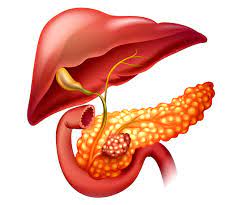
In Which Problems Are Hepatobiliary Surgical Methods Used?
Hepatobiliary surgical methods can be used to treat various problems such as :
- Liver and biliary tract cancers,
- Pancreatic cancer
- Liver cirrhosis and liver failure,
- Gallstones and biliary obstructions,
- Pancreatitis and pancreatic cysts,
How Is Pancreatic Cancer Treated?
Pancreatic cancer is an aggressive type of cancer that starts in pancreatic cells and spreads rapidly. Since it is difficult to diagnose early, pancreatic cancer is usually detected in advanced stages and becomes difficult to treat. Pancreatic cancer treatment varies depending on the stage of the cancer, the patient’s general health, and age. The main treatment options are as follows:
If the cancer is diagnosed at an early stage and is confined to the pancreas, it is possible to completely remove the tumor with surgery. Surgical options include the Whipple procedure, distal pancreatectomy, and total pancreatectomy. However, these operations are high-risk and should be performed by experienced surgeons.
Radiation therapy tries to kill cancer cells or slow their growth by using high-energy X-rays or protons. Radiation therapy can be given before or after surgery and may be combined with chemotherapy.
Chemotherapy uses drugs that stop or slow the growth of cancer cells. Chemotherapy is often used to treat pancreatic cancer and can be used with different combinations of drugs. Chemotherapy can be used before or after surgery, in combination with radiation therapy, or as palliative treatment.
Targeted therapy uses drugs that target specific characteristics of cancer cells. These drugs try to prevent or slow the growth and spread of cancer cells. Targeted drugs used in pancreatic cancer include erlotinib and everolimus.
Immunotherapy stimulates the body’s immune system to fight against cancer. Immunotherapy drugs used to treat pancreatic cancer include pembrolizumab and nivolumab.
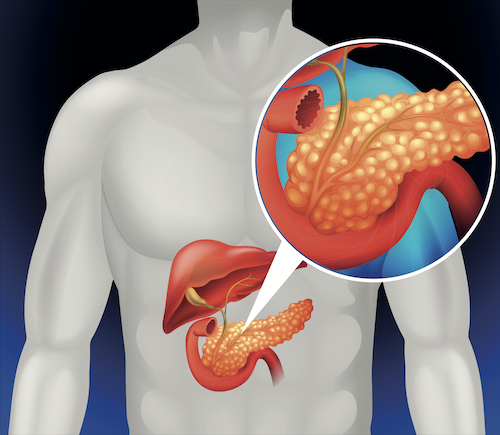
How Is Liver Cancer Treated?
Liver cancer is a type of cancer that starts in liver cells and spreads rapidly. Liver cancer treatment varies depending on the stage of cancer, the general health status, and the age of the patient. The main treatment options can be listed as follows;
If the cancer is diagnosed at an early stage and is confined to the liver, surgical removal of the tumor or removal of part of the liver (partial hepatectomy) is possible. Liver transplantation may also be an option for suitable patients.
Ablation therapy uses methods such as radiofrequency ablation, microwave ablation, or cryoablation to destroy cancer cells. These methods allow the tumor to penetrate without causing damage.
Embolization therapy cuts off the blood supply to the cancer cells and prevents the tumor from feeding. These methods include transarterial chemoembolization (TACE), radioembolization, and arterial embolization.
Radiation therapy uses high-energy X-rays to kill cancer cells or slow their growth. External radiotherapy or internal radiotherapy (brachytherapy) can be used in liver cancer.
Drugs used to treat liver cancer include chemotherapy and targeted therapy. These drugs try to prevent or slow the growth and spread of cancer cells.
Immunotherapy stimulates the body’s immune system to fight against cancer. Immunotherapy drugs used to treat liver cancer include pembrolizumab, nivolumab, and ipilimumab.
What Is a Bile Duct Cyst?
A bile duct cyst is a condition in which there are abnormal enlargements of the bile ducts. Bile ducts are tubes that carry bile from the liver to the gallbladder and small intestine. Bile duct cysts can block the flow of bile and cause infection, liver damage, or cancer.
Symptoms of bile duct cysts include abdominal pain, jaundice, fever, and vomiting. Bile duct cysts are diagnosed using imaging methods such as ultrasound, computed tomography (CT), magnetic resonance cholangiopancreatography (MRCP), and endoscopic retrograde cholangiopancreatography (ERCP).
Treatment of bile duct cysts is usually surgical. Surgery is performed to remove the cyst, reconstruct the bile duct, and restore bile flow. Surgical treatment helps prevent and treat complications caused by bile duct cysts.

What Causes Gallbladder Problems?
The gallbladder is a small organ where bile produced by the liver is stored and concentrated. Bile is a fluid that aids in the digestion of fats and contributes to the elimination of waste substances. Gallbladder problems can occur for various reasons and this can negatively affect the quality of life of the person. The main causes of gallbladder problems can be listed as follows;
- The most common cause of gallbladder problems is gallstones. Gallstones are small solid structures formed by bile that hardens and crystallizes in the gallbladder. Gallstones can cause obstruction in the gallbladder or bile duct, causing pain and inflammation.
- Inflammation of the gallbladder is called cholecystitis. Cholecystitis is usually caused by gallstones and can cause swelling of the gallbladder, pain, and fever. Cholecystitis can be acute or chronic.
- They are small, usually harmless growths that form on the lining of the gallbladder. They often show no symptoms and are detected by chance. However, large polyps can cause problems by blocking the flow of bile.
- Although rare, gallbladder cancer can also cause gallbladder problems. Gallbladder cancer is difficult to treat as it is usually diagnosed at an advanced stage.
- This condition is defined as impaired bile flow due to irregular contraction of the gallbladder. Biliary dyskinesia can result in gallbladder pain and digestive problems.
Treatment of problems with bile varies depending upon the type and severity of the problem. It is possible to list the treatment procedures for bile-related problems as follows;
- Small gallstones usually do not cause symptoms and do not require treatment. However, when large gallstones cause pain and obstruction, surgical intervention may be required. This procedure, called cholecystectomy, is the surgical removal of the gallbladder.
- Acute cholecystitis can be controlled with antibiotic treatment and painkillers. In the case of chronic cholecystitis, surgical removal of the gallbladder may be necessary.
- Small polyps usually do not require treatment and can be kept under control with regular follow-up. Large polyps can be treated with cholecystectomy when they obstruct the flow of bile or carry a risk of cancer.
- Treatment of gallbladder cancer varies depending on the stage and spread of the cancer. Treatment with methods such as surgery, chemotherapy, and radiotherapy can be applied.
- Lifestyle changes such as dietary changes, medications, and stress management play an important role in the treatment of biliary dyskinesia. If pain and symptoms cannot be controlled, cholecystectomy may be considered.

The Most Advanced Options for Hepato-Pancreatic-Biliary Surgery
Hepato-pancreato-biliary (HPB) surgery is a complex field that treats diseases of the liver, pancreas, and bile ducts. These organs are essential for digestion, metabolism, and hormone production, so HPB surgery can be life-saving for patients with serious conditions.
In recent years, there have been significant advances in HPB surgery, leading to better outcomes for patients. Here are some of the most advanced options available today:
- Minimally invasive surgery: Minimally invasive surgery uses smaller incisions and specialized tools to perform complex procedures. This can lead to less pain, shorter recovery times, and fewer complications for patients. Many HPB procedures can now be performed minimally invasively, including liver resections, pancreatectomies, and bile duct repairs.
- Robotic surgery: Robotic surgery is a type of minimally invasive surgery that uses robotic arms to perform the procedure. This allows surgeons to have greater precision and control, which can be especially beneficial for complex HPB operations.
- Image-guided surgery: Image-guided surgery uses imaging techniques, such as CT scans and MRI scans, to help surgeons visualize the anatomy and guide their instruments during surgery. This can improve accuracy and reduce the risk of complications.
- Personalized surgery: Personalized surgery uses genetic and molecular information to tailor treatment to the individual patient. This is becoming increasingly important in HPB surgery, as it can help surgeons identify the most effective treatments for each patient’s unique cancer or other condition.
In addition to these new technologies, Hepato-Pancreato-Biliary surgeons are also developing new surgical techniques and approaches to improve patient care. For example, surgeons are now able to perform complex liver resections on patients with advanced cancer, and they are also developing new ways to treat pancreatitis and other chronic Hepato-Pancreato-Biliary conditions.
If you are facing Hepato-Pancreato-Biliary surgery, it is important to choose a surgeon who is experienced in the most advanced techniques and has access to the latest technology. This will give you the best chance of a successful outcome.
Here are some additional tips for patients considering HPB surgery:
- Get a second opinion from another Hepato-Pancreato-Biliary surgeon before making a decision about surgery.
- Ask your surgeon about their experience with the specific procedure you need.
- Make sure your surgeon has access to the latest technology and equipment.
- Talk to your surgeon about your expectations for surgery and recovery.
- Be prepared to ask questions and advocate for yourself.

What Are the Complications of HPB Surgery?
Hepato-pancreato-biliary (HPB) surgery is a complex field that treats diseases of the liver, pancreas, and bile ducts. These organs are essential for digestion, metabolism, and hormone production, so HPB surgery can be life-saving for patients with serious conditions.
However, like any surgery, Hepato-Pancreato-Biliary surgery carries the risk of complications. Some of the most common complications of Hepato-Pancreato-Biliary surgery include:
- Bleeding: Bleeding is a potential complication of any surgery, but it is especially common after major HPB procedures such as liver resections and pancreatectomies.
- Infection: Infection is another potential complication of any surgery, but it is especially common after HPB surgery because the liver and pancreas are highly vascularized organs.
- Bile leak: A bile leak occurs when bile leaks out of the bile duct or other structure in the biliary system. Bile leaks can cause pain, infection, and other complications.
- Pancreatic fistula: A pancreatic fistula occurs when pancreatic juices leak out of the pancreas. Pancreatic fistulas can cause pain, infection, and other complications.
- Liver failure: Liver failure can occur after Hepato-Pancreato-Biliary surgery if the liver is not able to function properly. Liver failure can be a serious and life-threatening complication.
Other potential complications of Hepato-Pancreato-Biliary surgery include:
- Wound complications such as infection, dehiscence, and seroma
- Respiratory complications such as pneumonia and atelectasis
- Cardiovascular complications such as heart attack and stroke
- Renal complications such as acute kidney injury and chronic kidney disease
- Gastrointestinal complications such as nausea, vomiting, diarrhea, and ileus
- Neurological complications such as stroke and nerve injury
The risk of complications from Hepato-Pancreato-Biliary surgery depends on a variety of factors, including the type of surgery being performed, the patient’s overall health, and the surgeon’s experience.
How to reduce the risk of complications from HPB surgery
There are a number of things that can be done to reduce the risk of complications from HPB surgery, including:
- Choosing an experienced and qualified Hepato-Pancreato-Biliary surgeon
- Getting a second opinion from another Hepato-Pancreato-Biliary surgeon before making a decision about surgery
- Following your doctor’s instructions carefully before and after surgery
- Managing any underlying medical conditions, such as diabetes and high blood pressure
- Maintaining a healthy weight
- Quitting smoking
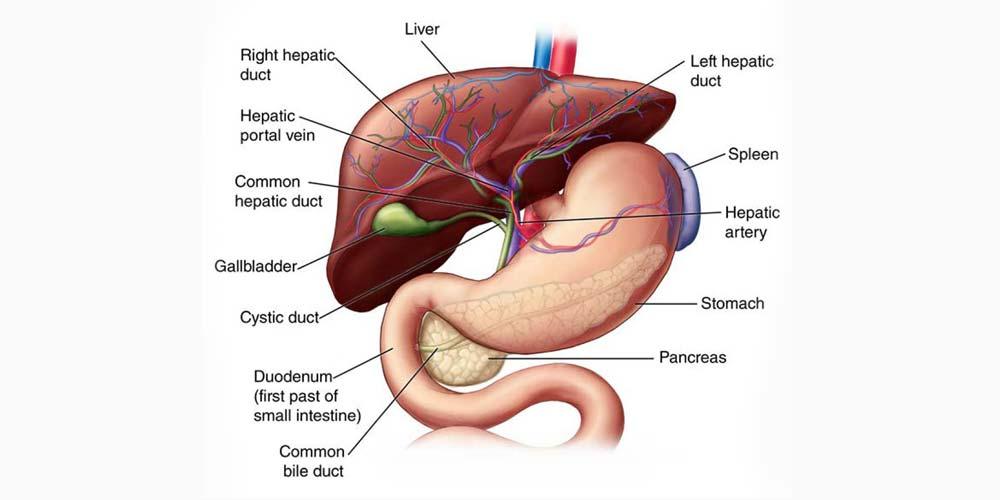
Hepato-Pancreatic-Biliary Treatment Prices in Turkey
Turkey has managed to announce its name to the world with its investments and studies in the field of health. Especially the latest technological devices used in diagnosis and treatment procedures have been a beacon of hope for many diseases. However, there has been an increase in health tourism in Türkiye.
- Hospitals are large, clean, spacious, and fully equipped in terms of technological equipment.
- Turkish doctors are specialized, successful, and skilled in their fields.
- Nurses and carers are friendly and compassionate.
- Finding answers to the questions asked quickly and accurately.
- Patience and understanding of all staff, including the intermediary company dealing with the patient.
- Turkey offers holiday opportunities with its natural and historical beauties.
- Easy transportation.
- Diagnosis, treatment, accommodation, eating, drinking, dressing, and holiday needs can be met at affordable prices.
Such situations are shown among the reasons for preference. HepatoPancreatic – Biliary Treatment Prices in Turkey, we can see that patients and relatives of patients who want to come to Turkey are doing research. However, it would not be right to give clear price information at this stage. Many factors such as the type of disease, stage, diagnosis process, treatment process, and stay in Türkiye affect the price issue. If you want to get more detailed price information, you can contact us. In addition, if you come to Turkey for treatment through us, we can facilitate your visa application process with the invitation letter sent by us to the consulate.
What is the recovery time for hepatobiliary surgery?
After leaving the hospital, patients will typically need to rest at home for several weeks. During this time, patients should avoid strenuous activity and heavy lifting. They should also follow their doctor’s instructions carefully for wound care and pain management.
What is the survival rate for high-risk surgery?
The survival rate for high-risk surgery varies depending on the type of surgery and the patient’s individual circumstances. However, in general, the survival rate for high-risk surgery is lower than the survival rate for lower-risk surgery.
For example, a study published in the Journal of the American Medical Association found that the 30-day mortality rate for patients undergoing high-risk surgery was 6.1%, compared to 1.2% for patients undergoing lower-risk surgery.

Vimfay International Health Services